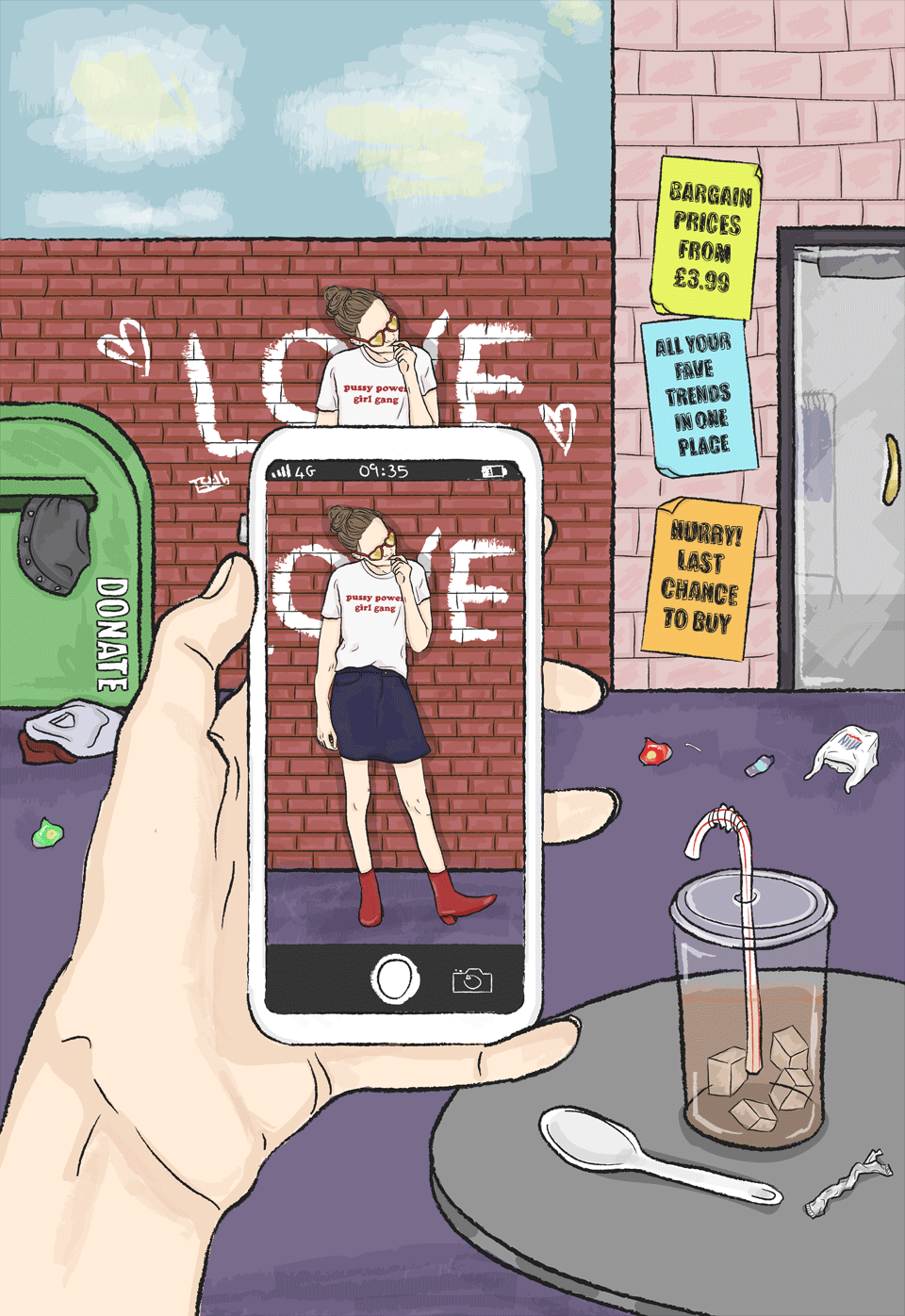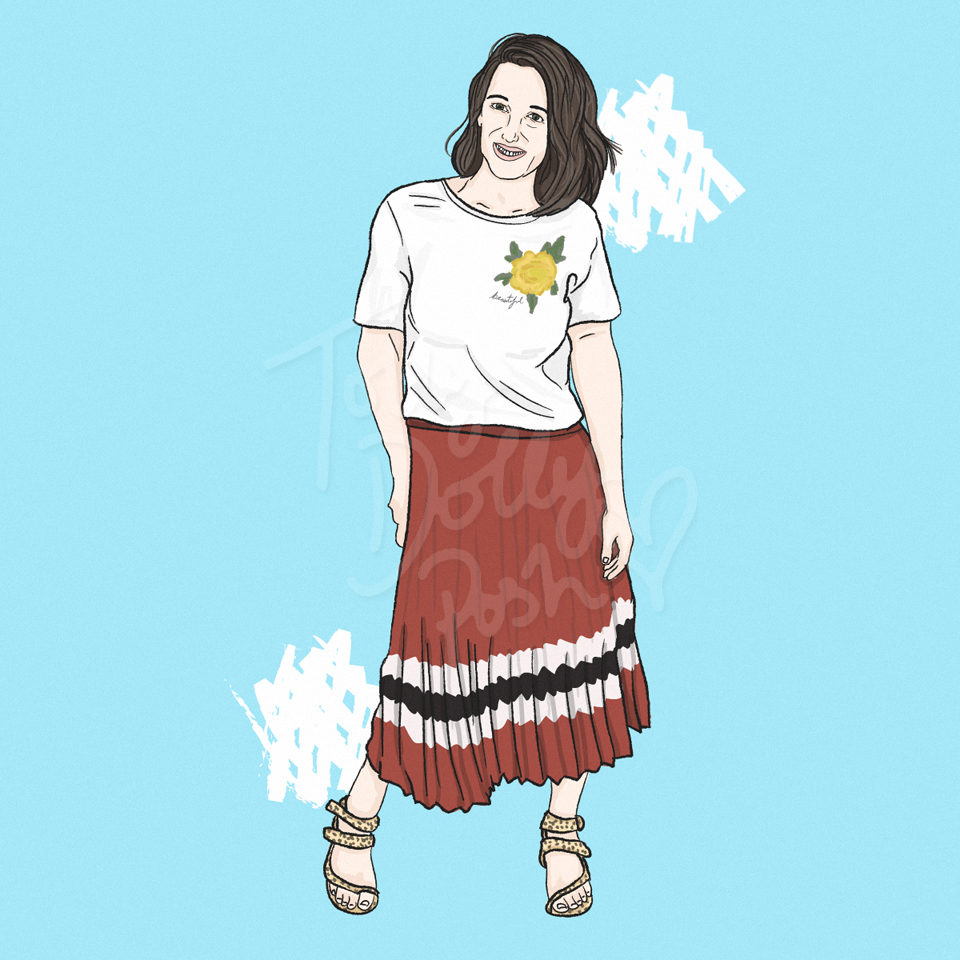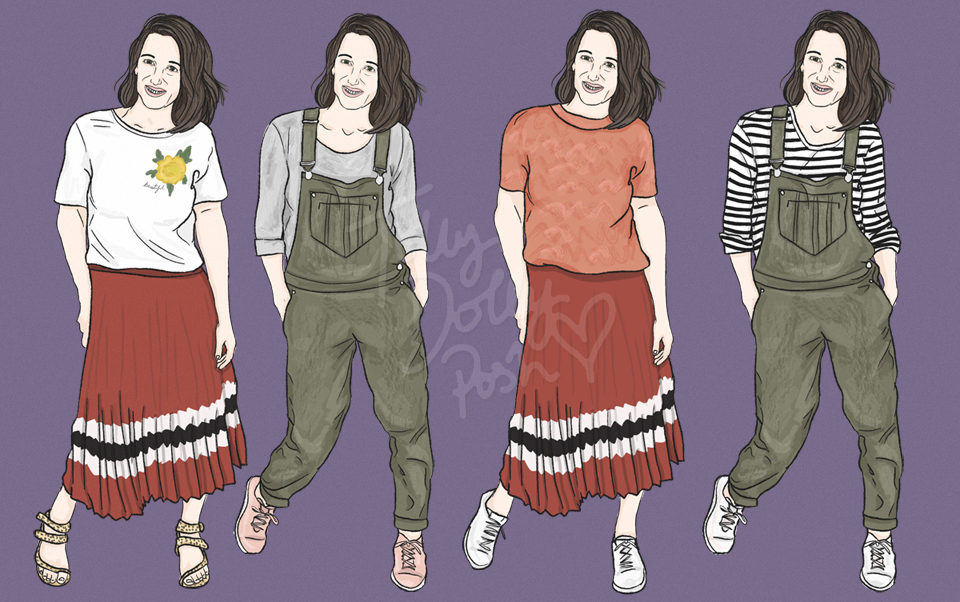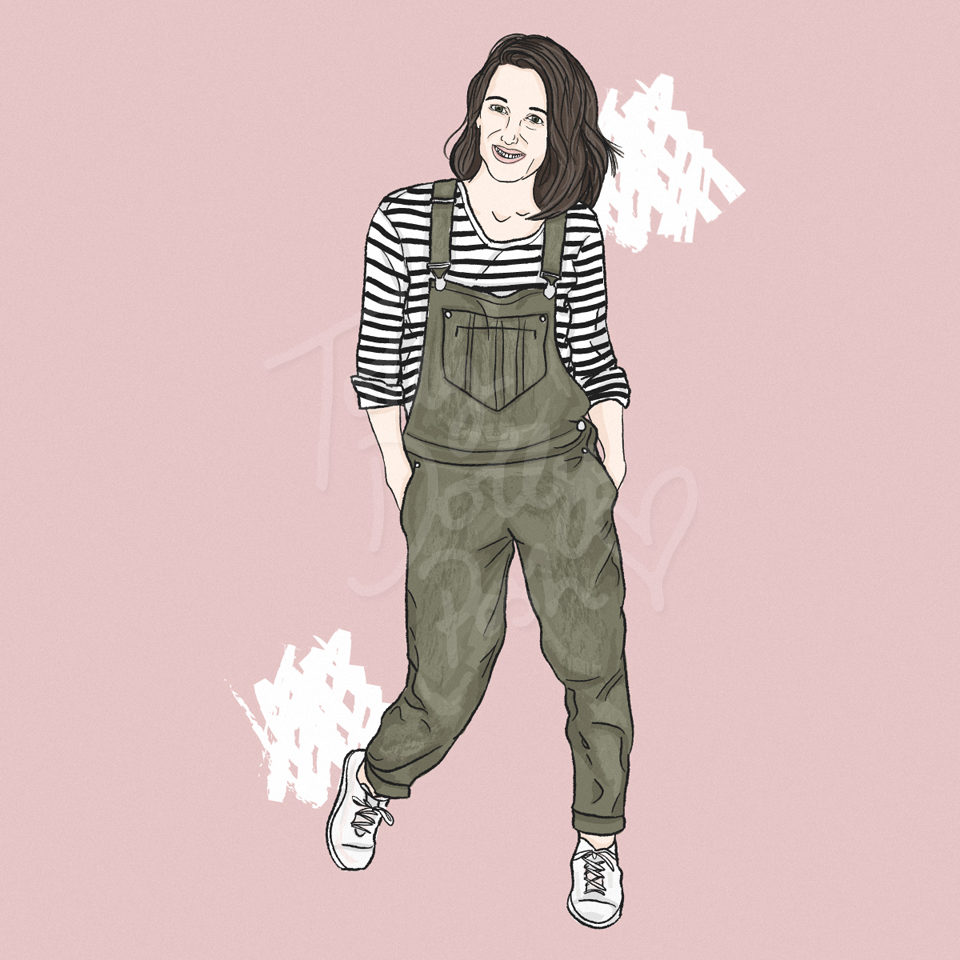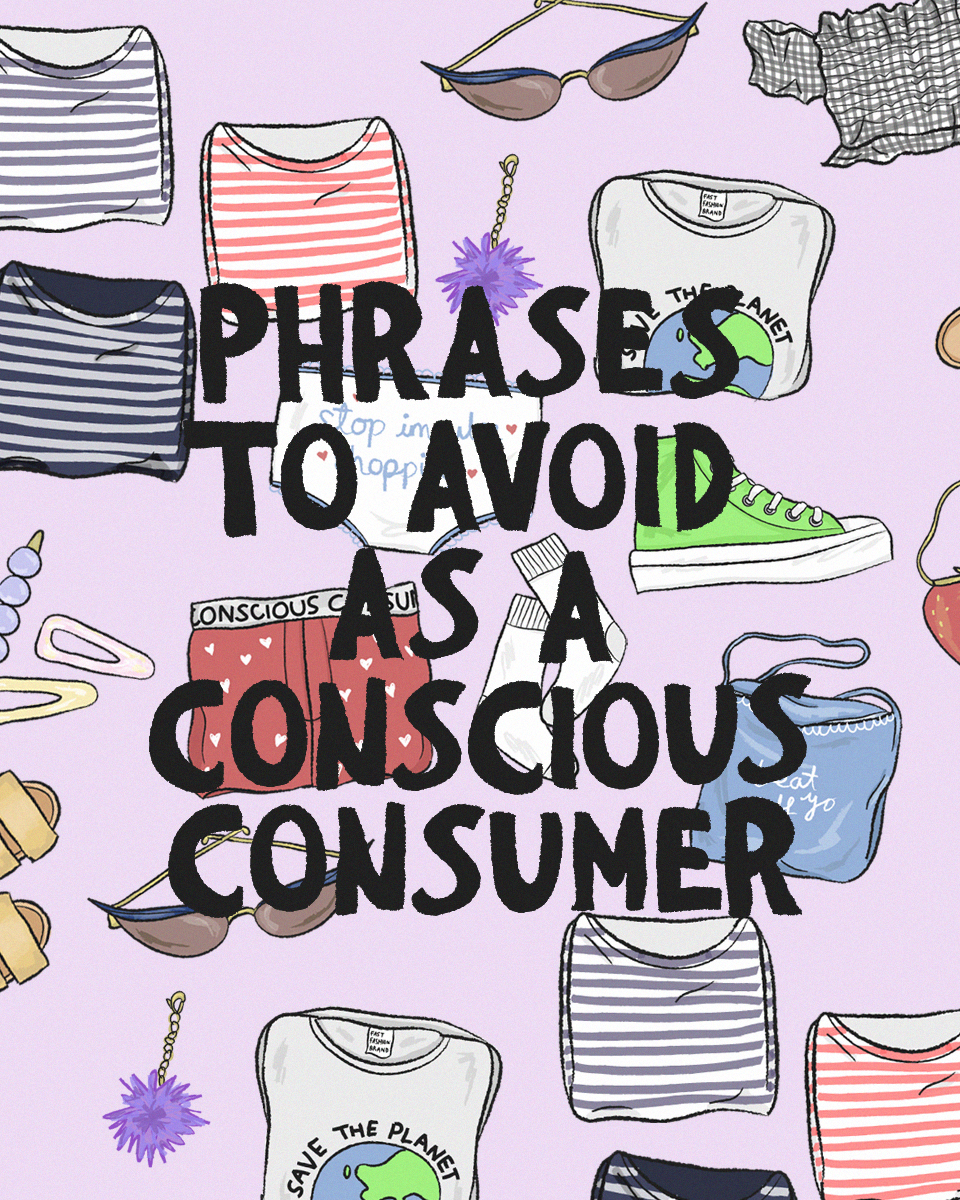
Whenever I’m asked for advice on experiencing fashion sustainably (I’ve decided I prefer to say experiencing over shopping because consumption isn’t the be-all and end-all of this issue), I tend to always answer with, “Ask questions“, which initially stemmed back to how I came to educate myself on fast fashion’s human and environmental impact.
Fashion Revolution, the organisation that played a big part in my education and understanding of the industry, bases its main campaign around “Who made my clothes?” and asking brands for transparency but to me, this sense of curiosity and urge to ask questions should go further.
With the likes of Extinction Rebellion’s new fashion boycott spurring on more people to analyse their shopping habits and questioning whether we need to be buying any clothes at all (once we already have a decent amount to wear), I believe it’s important to evaluate how we approach shopping – or avoiding it (which I’ve discussed here) – and the language we use. We need to ask ourselves. We need to slow down and understand how we truly feel, and especially when shopping, we need to avoid certain phrases…
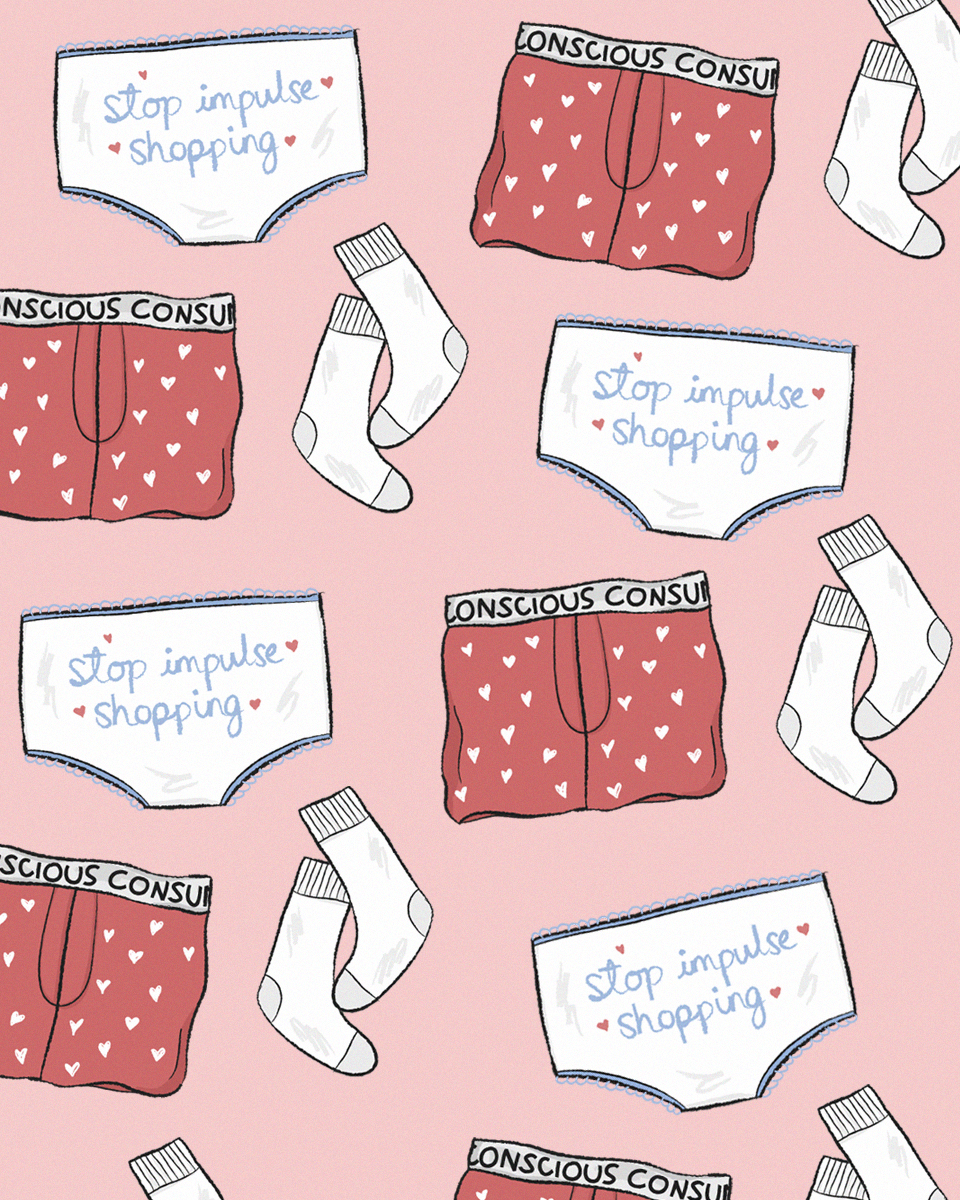
“I need this.”
Admittedly, there are times when necessity does come into play. Whether it be for work or school or because something you already own has been damaged or stained to a point of no repair, there are times when ‘needing’ something is excusable. However, there’s a stark contrast between genuinely needing something and labelling an impulse purchase as a necessary one.
I’ve definitely experienced plenty of those, “That’s so me!”, squeal-worthy moments, so, it might seem nitpickish to call this out as an issue but it’s all part of consciously shifting your mindset and attitude towards shopping.
Now that the majority of my shopping occurs on a second-hand basis, I truly understand the difference between needing and wanting. This doesn’t mean that I’m numb to impulse and spontaneous purchases; charity and thrift shops can still bring out that sense of excitement and temporary fulfilment in you but it just comes with minimised guilt.
For me, this distinction between necessity and longing extends to my blog and my approach to receiving samples and gifted products. If I don’t need it or if I already have a similar item in my possession then I will politely decline.
There’s no issue in wanting, in fact, I’ve previously written all about actively lusting over items and why I believe wish lists can be more useful than I once deemed them to be.
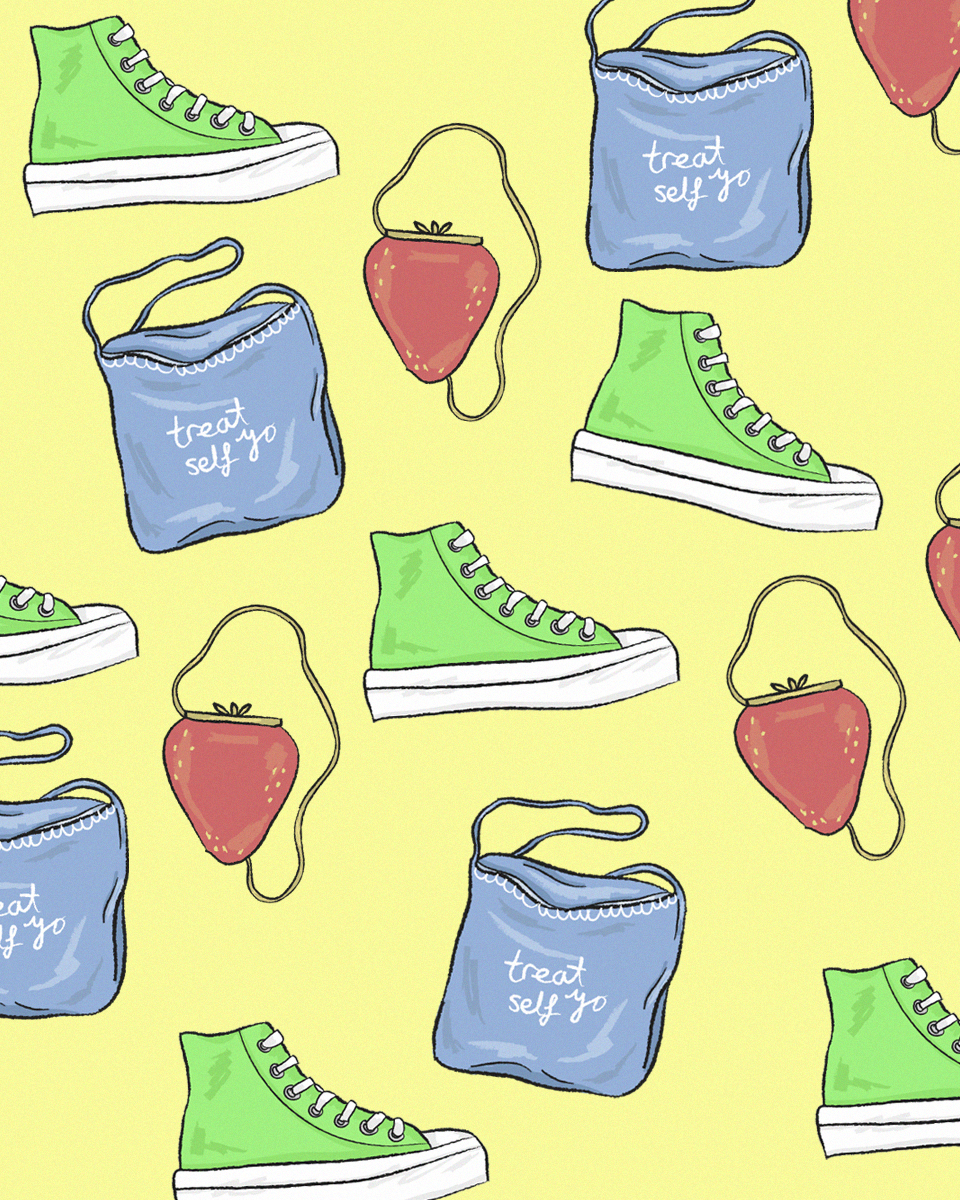
“I probably didn’t need this.”
Similarly, this is a phrase which derives from impulse purchases and is almost the exact opposite attitude of what somebody who labels themselves as a ‘conscious consumer’ might have. In simple terms, if you probably didn’t need it, then why did you buy it? ‘Treat yo’ self’ culture is something that we’ve all become fairly desensitized to and it’s understandable, seeing as retail therapy is scientifically proven to be just that – a form of dopamine-inducing therapy.
Shopping sustainably though (or avoiding shopping altogether), is all about taking your time to mull over your decisions and work out what the best option is. To shop, or not to shop? That is the question!
Limiting the number of times we fall back onto the excuse of treating ourselves, is a way of not only restricting the size of our wardrobes but a way of saving ourselves money in the long-run.
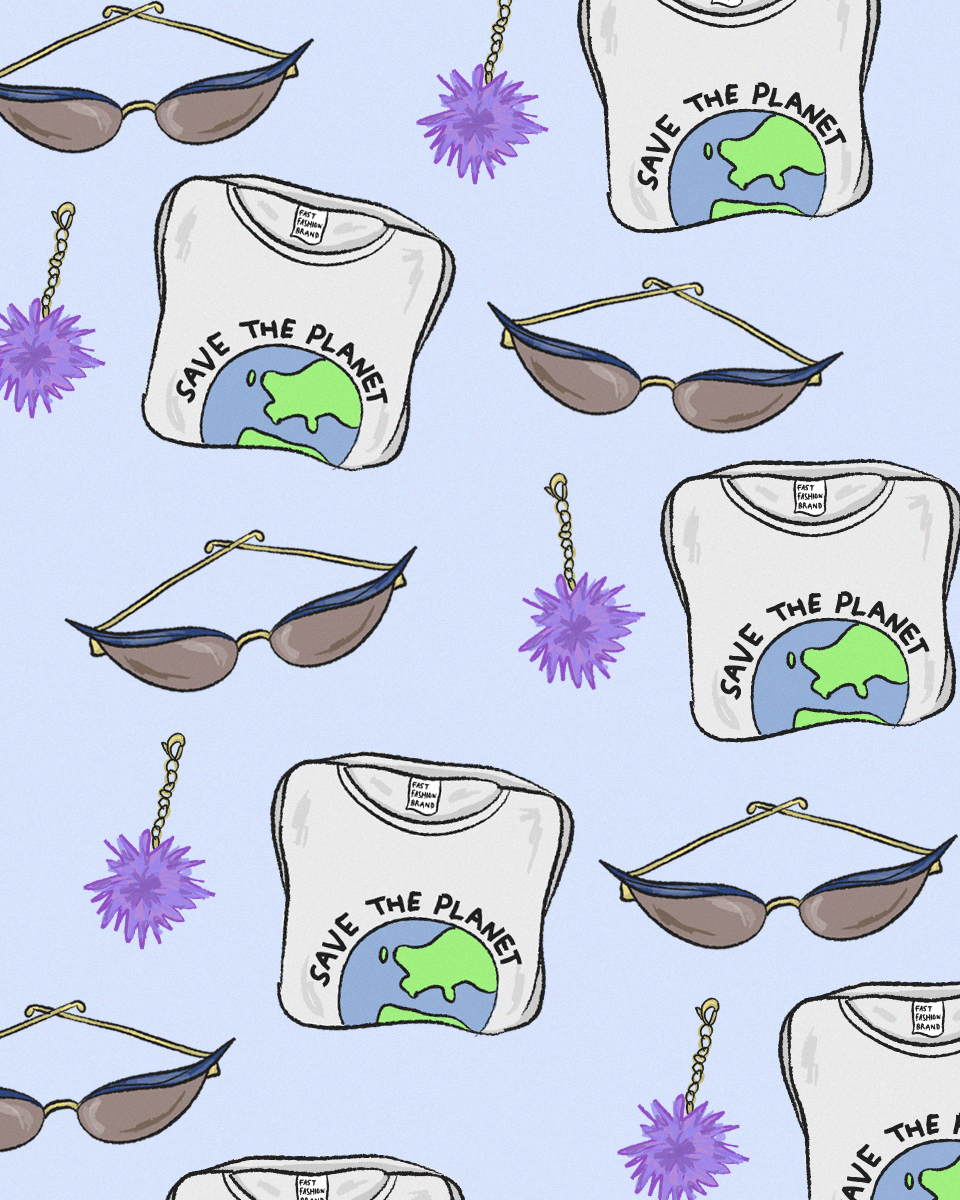
“I’m not sure why I bought this.”
I see this to be different to the previous two phrases because it doesn’t just suggest that what you bought was an impulse purchase; it also suggests the attitude you might have towards the item in the future. Shopping sustainably also means owning responsibly.
Fashion Revolution coined the phrase “Loved clothes last”, meaning that if we care and respect our clothes, no matter how ethically produced they were or what materials they are made of, they will ultimately last longer because we will do our best to look after them.
(However, this is not a reason to fall back into the habit of supporting unsustainable and unethical brands just because we know we can make their products last. That’s like continuing to use single-use plastic bottles just because you can refill them over and over; there are other ways of doing things that won’t be harmful to start off with.)
None of these phrases strictly imply that you’re living and consuming unsustainably but I believe that what we say and think about our clothes and what we bring into our lives can have a huge effect on our mindset towards consumption. So, if we can change our attitude towards genuinely knowing why we buy what we buy, it could help us all be far more considerate.

“It’s really in trend right now.”
Aside from the sustainability aspect, the lack of guilt and the fact that it’s a habit I’ve had since I was a child, one reason I love shopping second-hand is that it allows so much more room for individuality.
Clothes are not separated into styles and seasons (at most, you might find clothes organised by colour) and there are no look books and stylised campaigns to influence your decision making. There are no trends, which makes avoiding this phrase relatively easy.
Trends and the vast amount which are generated by the fashion industry’s constant cycle of seasons, maintain the rate of production of new garments and feed into this idea that what we are wearing and searching for, is never enough. There will always be another season with another set idea of what we should be wearing, therefore, another reason to buy.
There’s absolutely nothing wrong with enjoying trends but I recommend taking the time to sit with those feelings and analyse them once the peak of the trend has passed. I use apps like Depop and the Saved function of Instagram to store trend-led items for sale so I can source them sustainably in the future if the style is still something I appreciate.
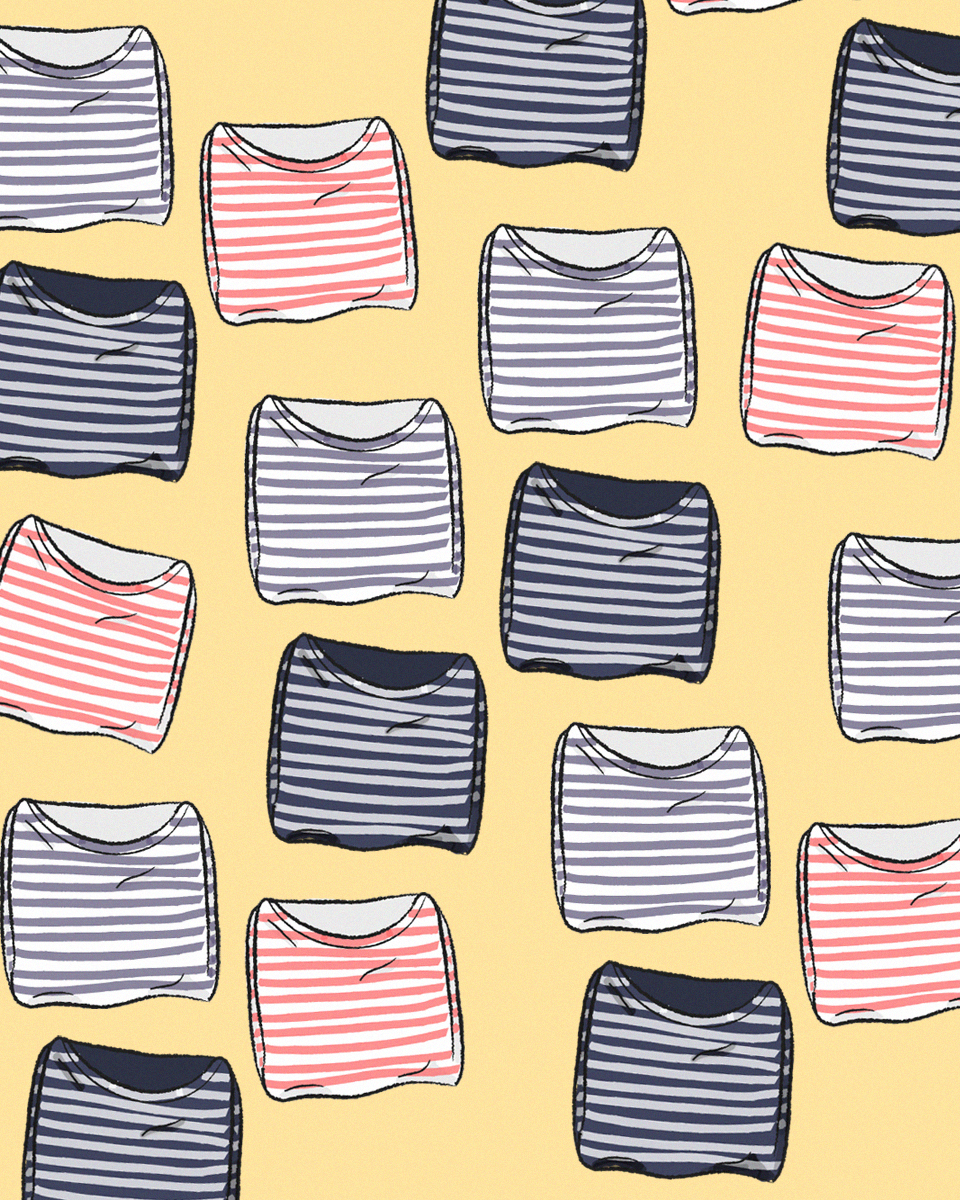
“I really need to stop buying more [insert item of clothing]…”
This is the phrase which I believe is easiest to scrap entirely. Don’t get me wrong, it’s understandable (and even appreciated) when somebody owns something in their wardrobe in a selection of different colourways because it’s a dress/shirt/pair of trousers that fits and suits them better than anything else – for some people, that’s essential, especially when it comes to finding the right sizing (even more so from an ethical or sustainably focused brand which might not always have the most inclusive size-ranges).
When it comes to your wardrobe as a whole though, it’s time to recognise when enough is enough. For me? I don’t need any more blouses and tops. I have too many to balance out the number of bottoms (trousers, shorts and skirts) that I own.
That doesn’t mean that I’m going to suddenly decrease the size of my wardrobe (a smaller wardrobe doesn’t necessarily make a more sustainable one) but it does mean I need to be making the conscious effort to stop adding more in the future, even if it is from a guilt-free source like a local charity shop.
Analyse your wardrobe and figure out what your limit is. From my experience, physically limiting myself (with a lack of storage space or from living out of a suitcase) has meant I’ve been able to calculate this more easily.
What other phrases can you avoid to achieve a more sustainable mindset? Suggest them in the comments!







